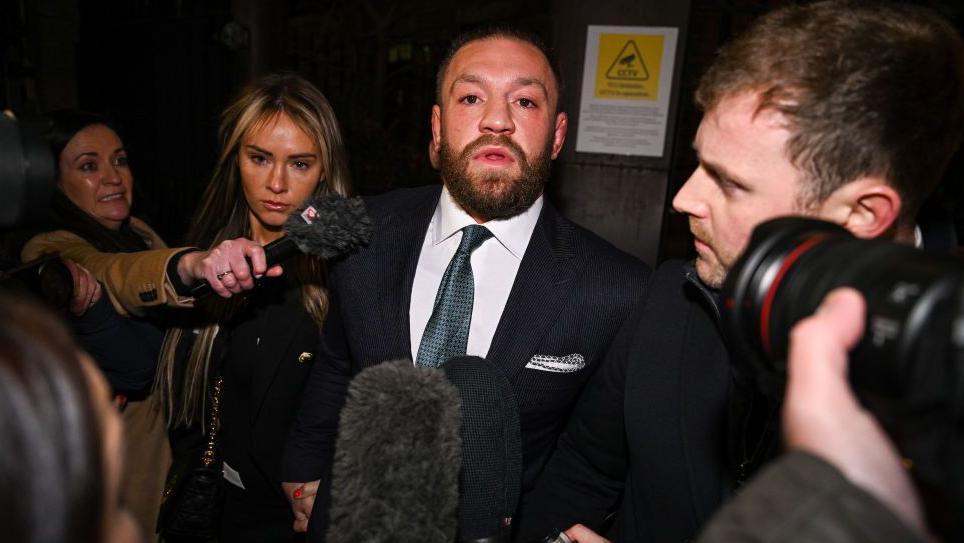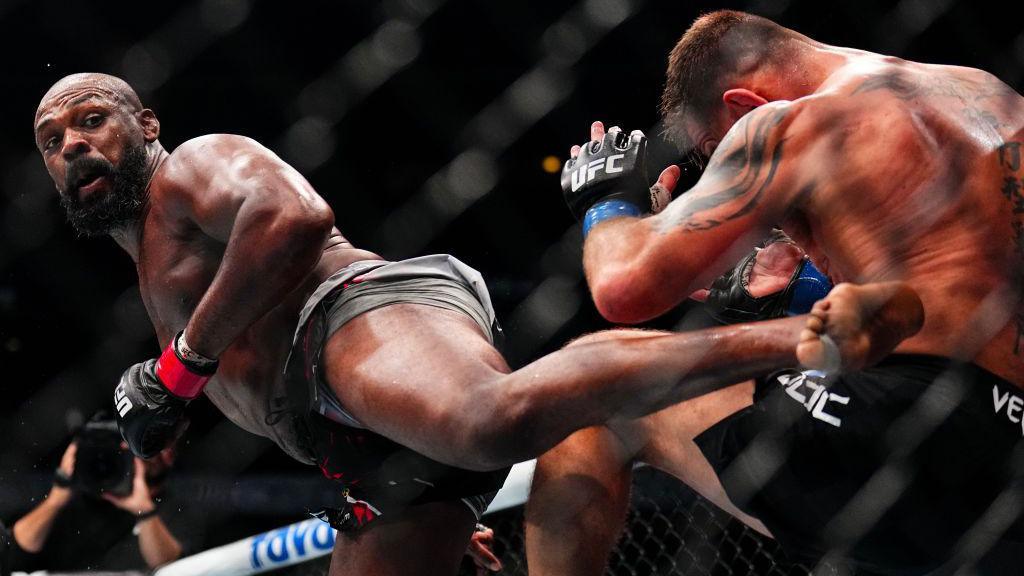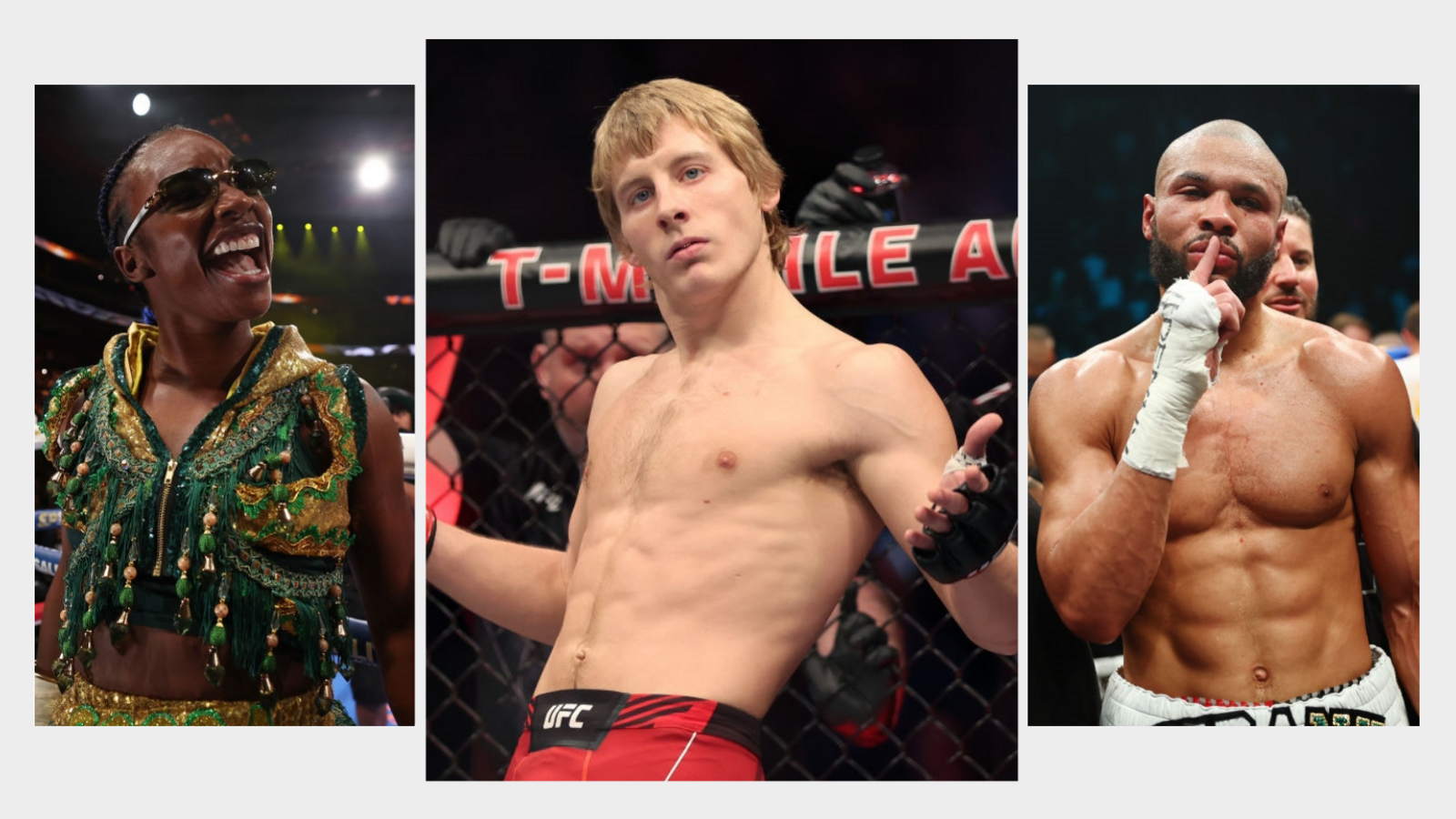If McGregor fights it will be sometime next year - White

Conor McGregor has not fought since defeat by Dustin Poirier in 2021
- Published
UFC president Dana White says if Conor McGregor fights again in the promotion it "will be sometime next year".
Last month an Irish jury found McGregor liable for assault in a civil rape case taken by Nikita Hand.
The Irishman was ordered to pay Ms Hand almost 250,000 euros (£206,000) in damages and her legal costs.
McGregor, who had denied the allegations, has already said he will appeal.
When asked by journalists in a news conference following UFC 310 for his reaction to the outcome of the civil case, White responded: "If I had a comment I would have put it out already."
White was then asked to clarify McGregor's position in the UFC.
"He hasn't been fighting here in how long? If he does fight it will be sometime next year," White added.
McGregor has not fought in the UFC since breaking his leg in defeat by Dustin Poirier in 2021, while his comeback against Michael Chandler in June was cancelled after the Irishman broke his toe.
The jury at the High Court in Dublin found McGregor had assaulted Ms Hand in a Dublin hotel in December 2018.
Some journalists were asked by the UFC not to ask questions about McGregor to fellow Irishman Ian Machado Garry during UFC 310 fight week.
The UFC said Machado Garry did not want to discuss the issue and would prefer to focus on his fight against Shavkat Rakhmonov, which the Kazakh welterweight won by unanimous decision.
Meanwhile, White was not seen at Thursday's pre-fight news conference - an event he usually hosts - but did field questions at another news conference on Friday promoting UFC 311 in January. He was not asked about McGregor.
Could the UFC ban McGregor from fighting?
In short, yes the UFC could move to ban McGregor from fighting in the promotion.
The UFC's Athlete Conduct Policy, external gives guidelines on behaviour the organisation expects from its fighters.
It says athletes should not engage in behaviour which would "reflect negatively upon or bring disrepute, contempt, scandal, ridicule, or disdain to the athlete or UFC".
It adds that sanctions may be imposed on fighters who engage in misconduct, listing a number of examples, including "violent, threatening or harassing behavior, bullying, assault, domestic violence, sexual harassment and other sexual misconduct".
Although the UFC has imposed sanctions on athletes before for violating the policy, examples are sparse and disciplinary actions are more often linked to the sport, rather than a fighter's behaviour away from the octagon.
Jon Jones was punished by the UFC on two separate occasions in 2015, including being fined £19,500 for taking cocaine, while he was later suspended and stripped of his light-heavyweight title for his part in a hit-and-run incident.
One of the most recent times the UFC imposed sanctions was in December 2022, when it released Darrick Minner and warned fighters against training with coach James Krause, external after the pair allegedly violated its betting rules, pending an investigation by the Nevada State Athletic Commission (NSAC).
The UFC later confirmed fighter Jeff Molina was suspended as part of the same investigation, which is still ongoing.
Meanwhile, McGregor has escaped punishment by the UFC numerous times over the years for behaviour which could be deemed to violate its policy.
In 2018 McGregor injured several fighters by throwing a metal dolly into a bus. He was not punished by the UFC but was ordered to perform five days of community service by a US court.
Months later McGregor was involved in a large-scale brawl inside the octagon following defeat by Khabib Nurmagomedov. Again, the UFC did not sanction the Irishman, but he was suspended for six months and fined by the NSAC.
Last year, White was not punished by the UFC after a video emerged of him in a physical altercation with his wife, while numerous fighters have escaped sanctions for using homophobic slurs and for being involved in brawls away from fighting.
No public action was taken against Jorge Masvidal when he punched British fighter Leon Edwards backstage at an event in 2019.
The UFC's disciplinary process is essentially at its own discretion and the promotion often leaves external issues to be dealt with by the authorities or state athletic commissions overseeing its events.
However, other major American sports do regularly sanction athletes for actions away from the sport.
The NFL made sweeping changes to its personal conduct policy in 2021 to include punishments for conduct away from the sport, including domestic violence and sexual assault.
Cleveland Browns quarterback Deshaun Watson was banned for 11 games in 2022 after numerous women accused him of sexual assault.
Related topics
- Published14 December 2024

- Published28 April 2024

More MMA from the BBC
- Published16 August
